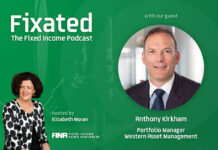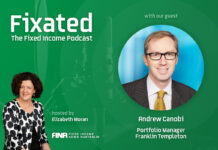
Think of the last time you made a large purchase, such as a car, house, or even a TV. You would have compared products before you made your decision.
In the investment world, bond yields are used as a key comparison in the valuation process for many different assets and products. Bonds will, therefore, in one way or another, impact every investment portfolio whether you own them or not. So, whether you invest in bonds or not (and every investor should!) learning about bonds is still valuable.
One reason bonds impact other investments is because financial assets do not operate in isolation; there is a choice for investors. While smaller investors may not be analysing these choices, fund managers and larger asset managers most definitely are. Assets are judged according to how attractive they look compared to each other. As Government Bonds are seen as the least risky asset class, other assets are compared to them because investors need to know they are getting a good return for the risk of holding riskier assets such as equities.
Bond yields are also key inputs into many financial models aimed at valuing other assets and products. Whether it’s as the risk free rate in option pricing models or as a reference for discounted cash flows.
In fact, one key reason for higher equity valuations in recent years has been the significant drop in bond yields which has improved company valuations in models as well as of course, making equity returns and dividends more attractive on a comparison basis. For example, if an investor can earn 5% on a safe Government Bond, then a company dividend of 5% doesn’t look so attractive. However, if a fixed rate government bond yield falls to 1% and the company dividend remains at 5%, it obviously looks more attractive. Note, that if government bond yields fall it means that the bond price has rallied so in this environment both bond and equity investors can profit. This is the environment we have been in for a number of years.
[Related reading: Own Your Age in Bonds]
Falling bond yields also make it cheaper (and usually easier) for companies to borrow. Falling borrowing costs and cheaper access to funds are obviously also positives for companies and therefore for many equities too.
Getting back to the effect of bond prices have on other assets, a country’s relative bond yield can affect the attractiveness to overseas investors of that country’s assets. If for example, Australian bonds are yielding considerably more than say US bonds, then overseas investors may want to invest in Australian bonds. This activity may drive the Australian dollar higher as foreign investors need AUD to purchase the bonds.
Precious metals investors should understand that historically one of the strongest correlations for gold is versus real yields. Real yields are calculated as the current bond yield (usually 10-year government bonds are used) minus the inflation rate. As gold doesn’t pay any dividend its price is affected by the real yield that an investor can receive from bonds. If real yields are high, then gold looks less attractive. Again, in recent times, real yields have fallen sharply and in fact they are now negative in many countries as the inflation rate is above the yield on 10-year government bonds. This environment has made gold far more attractive.
[Related reading: Hitchhiker’s Guide to the Debt Universe]
Property investors are also affected by moves in bond yields, particularly at the middle to longer end of the curve. While many commentators focus on the effect of Central Bank cash/overnight rate on loan interest rates, the reality is that bond yields can have greater influence on loan rates. As loans tend to be over longer periods of 10 years plus, they will be greatly influenced by moves in 10-year interest rates. In some countries such as the US, these connections are very strong but they exist in all western economies.
It is sadly all too common for investors to have little knowledge of bonds let alone include bonds in their portfolio. Yet bonds are affecting their other investments whether they know it or not.
Gary Norden is Co-owner, Investment Manager of hedge fund NN2 Capital and owner of Organic Financial Group a Corporate Authorised Representative (No. 348956) of HLK Group Pty Ltd ▪ ABN 93 161 284 500 ▪ AFS Licence no. 435746 Any information or advice contained in this document is general in nature only and does not constitute personal or investment advice. We will not accept liability for any loss or damage, including without limitation to, any loss of profit, which may arise directly or indirectly from the use of or reliance on such information.

































